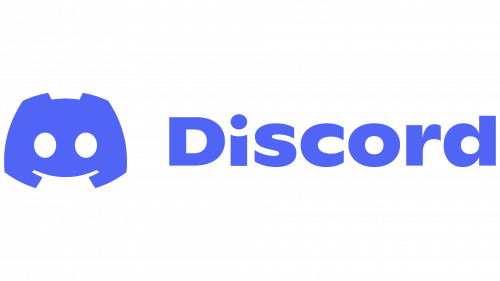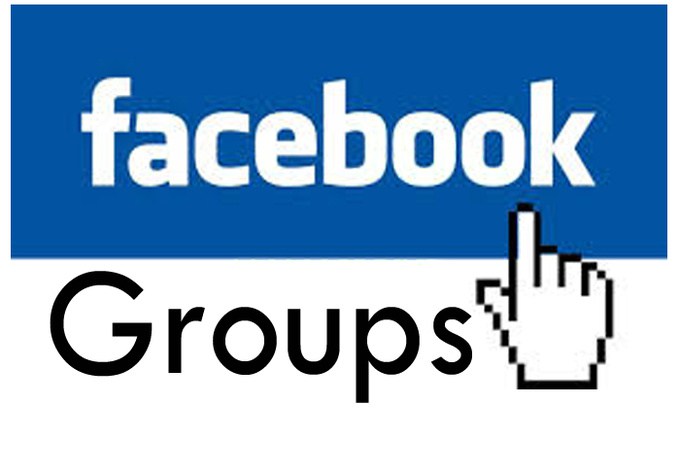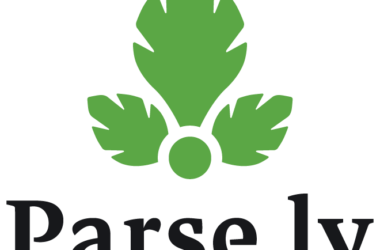In a rapidly evolving digital landscape where online communities play a pivotal role, the search for an alternative to Facebook Groups has become more than a quest—it’s a strategic pursuit for communities seeking a tailored, efficient, and engaging online experience. As we navigate the dynamic realm of social platforms, this article serves as a comprehensive guide, illuminating the features, limitations, and distinctive aspects of Facebook Groups. Beyond this exploration, we delve into a curated list of ten commonly used alternatives, dissecting their functionalities and nuances to empower community leaders and members in making an informed decision.
From Discord’s all-in-one communication hub to LinkedIn Groups’ professional networking space, each alternative to Facebook groups unveils a unique approach to fostering connections. We also delve into the essential factors that should guide the selection of the perfect alternative, ensuring a seamless transition that aligns with community goals and dynamics.
Features and Limitation Of Alternative To Facebook Group

Transitioning from the features and limitations of Facebook Groups, let’s now delve into the distinctive characteristics and potential drawbacks of alternative to Facebook groups platforms that offer a fresh perspective on online community building.
Features of Facebook Groups
- Robust Communication Hub: Facebook Groups serve as a comprehensive communication hub, offering features such as text, voice, and video communication, providing a versatile platform for community interaction.
- Event Planning Capabilities: One notable feature is the ability to plan and organize events directly within the group, facilitating seamless coordination for meetups, discussions, and collaborative activities.
- File Sharing Functionality: The platform allows members to share files, documents, and multimedia directly within the group, enhancing collaboration and information exchange.
- Centralized Community Space: Facebook Groups act as a centralized space for community members, offering a one-stop-shop for discussions, updates, and shared content, fostering a sense of unity.
- Customization Options: Users have the ability to customize their group settings, privacy levels, and notifications, tailoring the group experience to suit the unique preferences of the community.
Limitations of Facebook Groups
- Privacy Concerns: Facebook Groups have faced criticism regarding privacy issues, with concerns about data security and the potential for information misuse by third parties.
- Cluttered Interface: The platform’s interface can become cluttered and overwhelming as the community grows, potentially hindering user experience and information accessibility.
- Limited Customization: Despite some customization options, Facebook Groups may lack the flexibility and branding capabilities that certain communities desire for a more unique and branded experience.
- Algorithmic Content Display: The algorithm-driven content display may lead to important posts being buried, affecting the visibility of crucial information within the group.
- Dependence on the Facebook Ecosystem: Facebook Group users are inherently tied to the broader Facebook ecosystem, which may limit the experience for those looking to operate independently from the social media giant.
What Sets Facebook Groups Apart?
Facebook Groups stand out in the realm of online community platforms due to their multifaceted nature and integration within the larger Facebook ecosystem. One key differentiator is the platform’s robust communication hub, encompassing text, voice, and video communication to foster versatile interactions among community members. The seamless integration of event planning capabilities directly within the group facilitates the organization of meetups and collaborative activities. Additionally, the file-sharing functionality enhances the collaborative experience, allowing members to exchange documents and multimedia effortlessly.
The centralized community space provided by Facebook Groups creates a cohesive environment, serving as a one-stop-shop for discussions, updates, and shared content. Furthermore, the customization options empower users to tailor their group settings, privacy levels, and notifications, providing a personalized touch to the community experience. Despite its strengths, Facebook Groups do have limitations, such as privacy concerns, a potentially cluttered interface, and dependency on the broader Facebook ecosystem. These distinctive features collectively make Facebook Groups a popular choice for community building but also underscore the need for exploring alternatives to Facebook groups that might better align with specific community needs and preferences.
Why Look for an Alternative to Facebook Groups?

Transitioning into the exploration of alternatives, let’s delve deeper into the compelling reasons that drive communities to seek alternative to Facebook groups platforms, each stemming from the dynamic nature of evolving needs, a quest for diverse functionalities, a desire for specialized community experiences, and growing concerns about privacy and security.
1. Evolving Community Needs
In the ever-evolving landscape of online interactions, communities undergo dynamic shifts in their needs and preferences. What once sufficed for effective communication and engagement might no longer meet the expectations of a community adapting to new trends and emerging interests. Seeking alternatives to Facebook Groups becomes a strategic move, ensuring that the chosen platform can seamlessly accommodate the evolving nature of community dynamics, fostering a more relevant and satisfying user experience.
2. Diverse Functionalities Beyond Facebook’s Scope
While Facebook Groups offer a diverse set of features, some communities may find themselves limited by the platform’s capabilities. Whether it’s specialized tools for project management, dedicated spaces for creative collaboration, or unique integrations specific to their activities, communities often explore alternatives to Facebook groups to find platforms that align more closely with their distinctive needs. Exploring beyond Facebook’s scope allows communities to discover and integrate functionalities that enhance their collective experience in ways previously unattainable.
3. Desire for Specialized Community Experiences
The generic nature of Facebook Groups, while suitable for many, may not cater to the desire for a more specialized community experience. Communities with specific interests, hobbies, or professional pursuits often seek alternatives to Facebook groups that offer a more tailored environment. This quest involves finding platforms designed to provide niche-oriented spaces, fostering deeper connections and a more enjoyable experience for community members who share common passions and objectives.
4. Privacy and Security Concerns
In an era where digital privacy and security are of paramount importance, some communities, especially those engaging in sensitive discussions, prioritize platforms with robust privacy features. Facebook’s history of privacy concerns prompts communities to seek alternatives to Facebook groups that prioritize confidentiality and data security. By exploring platforms with advanced privacy and security measures, communities can ensure a safer and more trustworthy space for communication, fostering a sense of confidence among their members.
Commonly Used Facebook Groups

Embarking on a deeper exploration of the abundant alternatives to Facebook Groups reveals a diverse array of platforms, each meticulously designed to cater to specific needs and preferences. Let’s delve into the nuances of each alternative to Facebook groups, unraveling the distinct features that make them indispensable choices for various community dynamics:
1. Discord – The All-in-One Communication Hub
Discord stands out as a versatile platform that transcends conventional communication norms. Beyond the standard text-based interaction, Discord seamlessly integrates voice and video communication within customizable servers and channels. Originally favored by gaming communities, its adaptability makes it an ideal space for various interests, fostering dynamic conversations and collaboration.
2. Slack – Streamlining Team Communication
Originating from the corporate sphere, Slack expands its utility to serve as a streamlined alternative to Facebook groups for group communication. Its organized channels and extensive integrations make it a powerful tool for professional teams and hobbyist communities alike. Slack’s centralized space ensures efficient communication, making it a go-to choice for those seeking focused and organized interactions.
3. Reddit – Community-Driven Discussions
Reddit, a colossal platform housing an expansive network of subreddits, emerges as a dynamic alternative to Facebook groups for community-driven discussions. The platform’s unique upvote/downvote system ensures that engaging and relevant content rises to the top, creating an environment where enthusiasts from diverse fields converge to share insights, opinions, and experiences.
4. Mighty Networks – Building Branded Communities
For creators seeking a platform that goes beyond standard community features, Mighty Networks steps into the limelight. This alternative to Facebook groups empowers users to build branded communities with customizable features, catering to creators offering online courses, exclusive content, and paid memberships. It’s an ideal space for those aiming to curate a unique and immersive community experience.
5. WhatsApp Groups – Quick and Direct Messaging
In the realm of simplicity and direct communication, WhatsApp Groups shine as an uncomplicated yet effective alternative to Facebook groups. Facilitating quick messaging and file sharing within a closed circle of members, WhatsApp Groups are perfect for those prioritizing straightforward communication. Its casual approach makes it a favored platform for friends, family, and smaller communities.
6. Meetup – Facilitating In-Person Connections
Originally designed for in-person events, Meetup seamlessly extends its functionality to the digital sphere. Serving as a unique bridge between virtual and physical communities, Meetup remains a valuable alternative to Facebook groups for those seeking to foster both online and offline connections. Ideal for communities with a focus on real-world interactions.
7. Telegram – Secure Group Messaging
Telegram, placing a premium on security and privacy, emerges as a robust alternative to Facebook groups for communities with sensitive discussions. Its end-to-end encryption ensures secure group messaging, making it a compelling choice for those prioritizing confidentiality in their online interactions.
8. GroupMe – A Casual Approach to Group Messaging
For those favoring a laid-back approach to group messaging, GroupMe offers an alternative to Facebook groups that emphasizes simplicity and ease of use. Its casual and straightforward design makes it an ideal platform for smaller, informal communities looking for a seamless communication experience.
9. LinkedIn Groups – Professional Networking
Tailored for professional communities, LinkedIn Groups provide a dedicated space for industry-specific discussions, networking, and knowledge sharing. This alternative to Facebook groups seamlessly integrates socializing with professional development, offering a holistic platform for like-minded professionals to connect and collaborate.
10. Snapchat Groups – Visual Communication
Capturing the attention of younger demographics, Snapchat Groups introduces a visually engaging platform for quick communication through photos and short videos. As an alternative to Facebook groups that prioritizes visual expression within communities, it’s ideal for those who appreciate a more dynamic and visually oriented communication style.
Factors To Consider While Choosing The Perfect Alternative to Facebook Groups

Navigating the diverse landscape of alternative to Facebook Groups requires a comprehensive assessment, considering various factors to ensure a seamless transition and the creation of a thriving online community. Let’s delve deeper into five critical factors that demand careful consideration:
1. Community Size and Growth Potential
Understanding the current size of your community and anticipating its potential growth is paramount when selecting an alternative to Facebook groups platform. A scalable solution is essential to accommodate both existing members and newcomers. Assess the platform’s ability to handle increasing members and content without sacrificing performance, ensuring a dynamic and sustainable space for interaction.
2. Functionality Alignment with Community Goals
Identifying the specific functionalities crucial for achieving your community’s goals is a pivotal step in the selection process. Whether your community thrives on robust event planning, seamless file sharing, or multimedia integration, the chosen alternative to Facebook groups must align with these unique requirements. A platform that caters to your community’s specific needs not only enhances engagement but also fosters a sense of belonging among members.
3. User Interface and Accessibility
The user interface plays a pivotal role in the overall user experience. An intuitive and user-friendly design ensures that both new and existing members can navigate the platform effortlessly. Consider accessibility for diverse users, including those with varying levels of technical proficiency. A platform that prioritizes clarity and ease of use enhances inclusivity, contributing to a positive and engaging community environment.
4. Privacy and Security Features
In an era where online security is paramount, prioritizing platforms with robust privacy and security features is non-negotiable. Evaluate the encryption protocols, data protection measures, and other safeguards offered by the alternative to Facebook groups. Ensuring the confidentiality of sensitive information shared within the community not only builds trust among members but also safeguards against potential risks.
5. Cost and Monetization Options
Understanding the cost structure of potential alternative to Facebook groups is crucial for effective financial planning. Some platforms may offer additional features for a fee, impacting your community’s budget. Assess the cost implications of the alternative to Facebook groups and explore whether it aligns with your community’s financial capabilities and goals. Additionally, consider whether the platform offers monetization options, providing opportunities for your community to generate revenue if applicable.
Conclusion
As we navigate the diverse landscape of alternatives to Facebook Groups, it becomes evident that the online community sphere is brimming with options, each catering to unique needs and preferences. The quest for the perfect alternative is not merely about replacing a platform but about finding a digital home that aligns seamlessly with the goals and dynamics of your community.
In this exploration, we uncovered a plethora of alternatives, each offering a distinct flavor of community interaction. Discord, Slack, Reddit, Mighty Networks, WhatsApp Groups, Meetup, Telegram, GroupMe, LinkedIn Groups, and Snapchat Groups present themselves as formidable options, each carving a niche for specific community dynamics. Whether it’s versatility in communication, streamlined collaboration, community-driven discussions, or visual engagement, these alternatives
.









